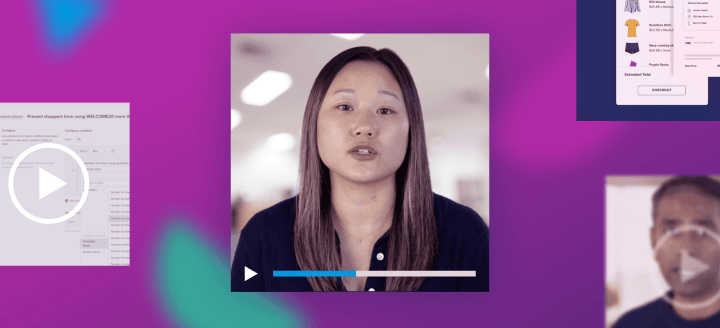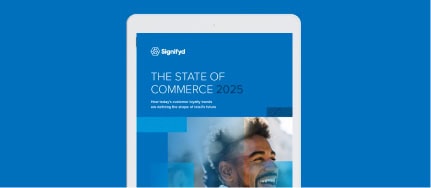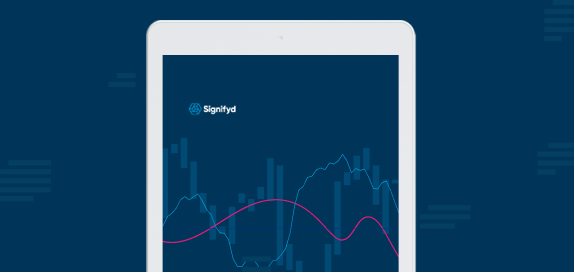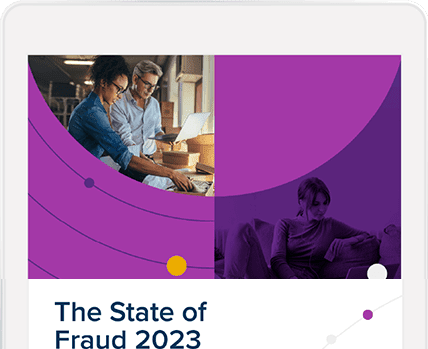Fraud is a different sort of animal.
Few know that as well as Signifyd Senior Vice President of Marketing and Growth Arjun Kakkar who recently sat down with Ivan Prokofevto to talk about a wide range of ideas, including what makes working to manage fraud and risk online different from many other pursuits.
“There are some very wonderful things that make it an exciting job,” Kakkar told podcaster Prokofevto, host of “A Journey into Fraud Protection,” to start their conversation.
It begins with the cause of the problem you’re trying to solve. You’re trying to solve a problem, Kakkar explained, that is being caused very deliberately by someone who wants to ensure that you do not solve it.
“First of all, you’re not trying to solve a problem which has a machine on the other side or just an automation on the other side,” Kakkar continued. “It has real humans, a real adversary. It’s almost like a game. There are people on the other side who are trying to do these bad things and you’re trying to fix those problems and that human adversary on the other side makes it very hard.”
Fighting fraud is a horrible wonderful thing
At first blush, it looks like Kakkar is a very different animal himself. Working to solve a problem that others are deliberately making very hard to solve is a “wonderful” thing? But when you listen to his whole interview with Prokofevto, you get it.
Fighting fraud is not boring. It’s not something that is here today and gone tomorrow. It could be a life’s work if you wanted it to be. And Kakkar incidentally provides plenty of pointers for those looking to work with Signifyd to carry on the crusade.
There is something special about fraud fighters — people who chose to not only protect online retail from fraud, but to maximize the chance for business success that those retailers have. The biggest value in fraud protection, after all, is the ability to increase conversion by identifying more good orders, more orders that should be filled.
Done right, commerce protection builds customer lifetime value
And by filing them, the merchant prospers not only from that single sale but from the many following sales that that same customer will transact, because that first experience was so efficient and pleasant.
As senior vice president of marketing and growth, Kakkar leads Signifyd’s corporate strategy and go-to-market operations to drive global growth. He has more than seven years of experience optimizing online transactions, ranging from launching and growing a $60 million digital merchant to scaling software as a service go-to-market teams.

Arjun Kakkar
Before Signifyd, Kakkar managed Ekata’s Payments & Financial Services businesses and was a part of the core executive team that steered Ekata from less than $5 million in revenue to its $850 million sale to Mastercard.
Prior to joining Ekata, Arjun was a principal with Booz & Company, where he led engagements to help the C-suite of Fortune 500 companies explore growth opportunities and solve business problems. Kakkar has a B.Tech from IIT Bombay and an MBA from The Wharton School at the University of Pennsylvania.
“I do work that helps improve the customer’s experience,” Kakkar says, explaining that better customer experiences mean more customer visits, which means more online sales — and more repeat sales. “I help improve the lifetime value of the customer.”
Customer lifetime value. It’s a more important measure than creating more conversions; or rising revenue — simply because increasing customer lifetime value means you are doing both while creating a flywheel effect.
But nothing about ecommerce is static. Not your customers’ wants, not their habits. And the vulnerabilities are constantly shifting. Professional fraud rings continually come up with new strategies, tactics and targets.
Fraud protection attracts high-caliber problem solvers
It’s one of the things that makes fraud fighting — the dark side of ecommerce — so fascinating and fulfilling, Kakkar says.
“If you have more of these harder problems to solve, it attracts a bunch of good people to work on it,” he says. “I love the passion that this industry has. When you meet people in places like MRC (Merchant Risk Council) or you meet people who are in the fraud industry, they’re passionate about it. It’s great to be in an industry that is growing, that has this challenge ahead of it.”
Fraud attracts a special bunch of problem solvers. A group that frankly is at times misunderstood in their own organizations. Their job is not to prevent fraud at all cost — because overdoing it can be costly indeed. Their job is to understand and identify the proper amount of risk and to see that as many orders as prudently possible are green-lighted. They are revenue optimizers.
Kakkar says he is happy to be working with a specific group of those good people at Signifyd, a group that has built a fraud solution that has distinct advantages over others in what still amounts to a young industry.
Signifyd is a different sort of commerce protection provider
Signifyd’s strength, he says, is in its diverse customer base, which includes giants like Walmart and small to medium-sized businesses operating on the Shopify platform. And Signifyd differentiates from almost all its competitors by offering a liability shift. In other words, Signifyd will reimburse merchants for the cost of fraud and abuse when it fails to detect illegitimate transactions that cause a retailer to lose out.
“This business model forces us first of all to solve the hardest problem because our skin is in the game,” he says.
The business model also allows Signifyd to gather crucial information about what every existing form and every new form of fraud looks like, because when merchants report losses Signfiyd receives that insight into what was behind the attack.
As the podcast begins to wrap up, Kakkar provides some advice for those who want to get into the fraud protection field — particularly those who’d like to get into the business with Signifyd. He explains what he looks for in new team members and the questions he asks in job interviews. We don’t want to give everything away. You can watch or listen to the podcast for that and for Kakkar’s thoughts on the future of fraud.
Looking to future-proof your fraud and risk protection? Let’s talk.









